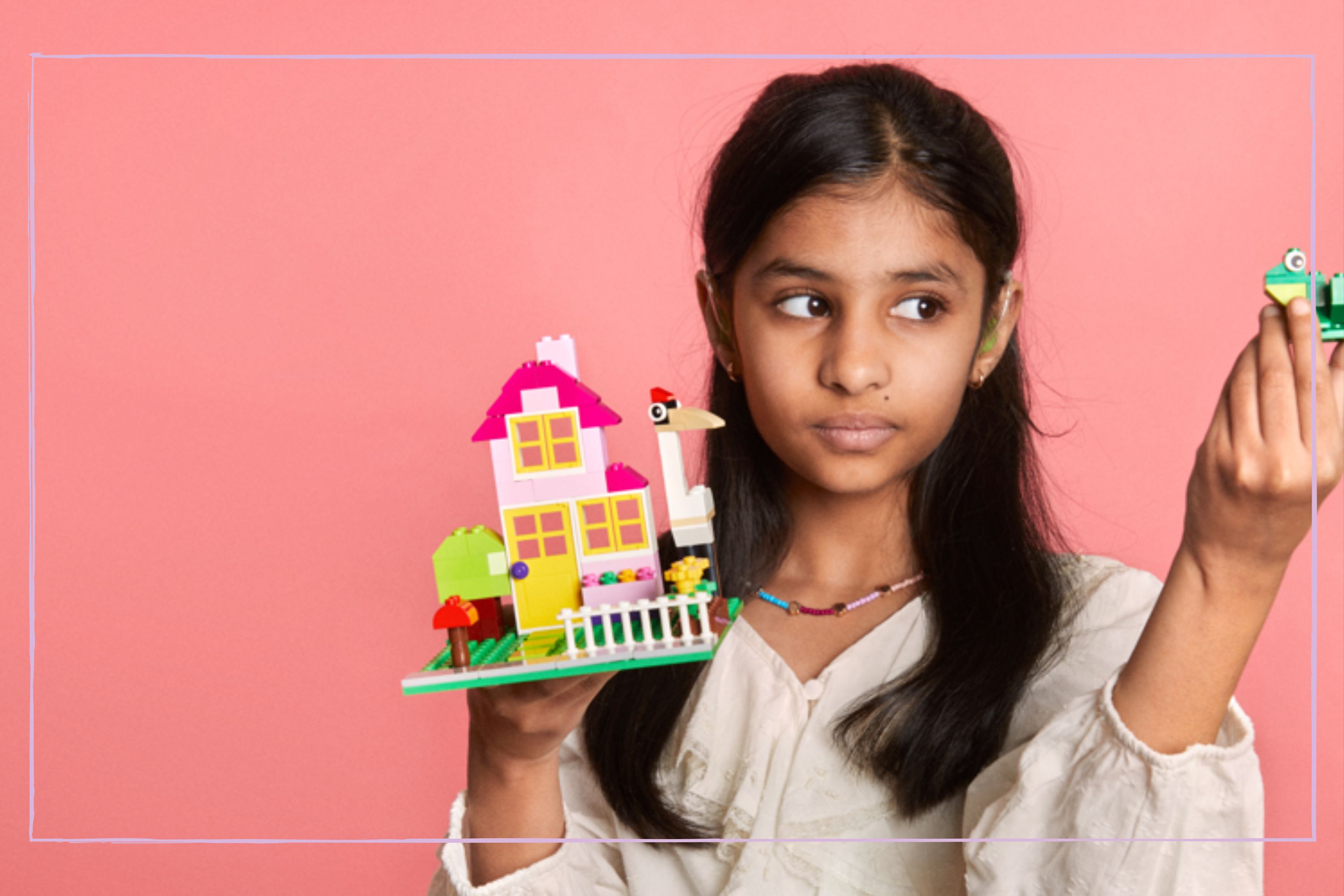
The LEGO Group has teamed up with writer and broadcaster Susie Dent to explore the impact language has on children - and the results are startling.
Learning language is one of the child development stages, and studies have shown that singing to babies is key for language development - which explains why Ms Rachel is so popular.
But the language children hear and pick up on can also have an effect on the way they see themselves, as new research has shown. A study from the LEGO Group recently found that 77 per cent of girls aged 5 - 12 say that certain language and words make them feel the need to be perfect.
In addition, the research found that the pressure of perfection through everyday vocabulary poses a risk, particularly for girls, of holding them back from reaching their full creative potential.
The LEGO Group surveyed more than 36 countries with 1,000 UK parents and children aged 5 - 12, and the results revealed that 89 per cent of girls nationwide feel pressure to be perfect. Meanwhile, 79 per cent said the grown-up use of the word 'perfect' invokes negative emotions, while 74 per cent admitted to avoiding tasks when they are afraid of not doing them perfectly. Overall, 78 per cent of UK children say they would be less afraid to try new things if mistakes were praised more as learning opportunities.
This in turn is having a detrimental effect on girls in particular, as 78 per cent of UK parents believe that girls face more pressure to be perfect compared to boys, while 65 per cent of children also feel that girls are expected to be more perfect than boys.
The findings highlight that society is around seven times more likely to attribute terms like 'sweet', 'pretty', 'cute' and 'beautiful' exclusively to females, while terms such as 'brave', 'cool', 'genius' and 'innovative' are twice as likely to be attributed exclusively to males.
The LEGO Group has partnered with lexicographer and etymologist Susie Dent - best-known for her spot in dictionary corner on Countdown - to discuss the long-lasting impact that language can have on children.
Susie commented: "The findings from LEGO Group confirm that the language we use towards children, and particularly young girls, can have an enormous impact. It’s essential that we challenge our biases if we’re to foster a society where girls can fully explore their creative potential. Every girl and woman deserves the freedom to explore her creativity without fear or pressure. The good news is that, by changing our language, we can be instrumental in changing the future."
Meanwhile, nine in ten parents say play helps their child’s self-expression, boosts their confidence to experiment, builds creative confidence and provides a safe space to explore and experiment without fear of failure.
It's true that LEGO is great for young childrens' development and the LEGO Group has pledged to continue to spotlight and help break down limiting societal stereotypes and biases. To continue championing what can be achieved when girls can play without limits, the LEGO Group has brought together Team Unstoppable 2024 in the UK - a squad of bold, fearless women to inspire girls with their stories of overcoming the pressure to be perfect.
In addition, new short film 'More Than Perfect' spotlights the creative possibilities that are unlocked when girls are free to play unstoppable, while a series of exciting, free creativity workshops are being introduced in select LEGO Stores and on LEGO.com aimed at young creators aged 6-12.
Take a look at these cheap LEGO deals to inspire your little one's creativity. In other parenting news, we've looked at how to teach children emotional intelligence, and 5 reasons why you should let your kid fail. Elsewhere, a child psychologist has shared three reasons why punishments don’t improve kids’ behaviour – and #2 makes so much sense.







